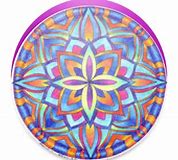
Valentine’s day is for spreading our love to those we care about, however, when we choose to not take responsibility for ourselves–allowing others to take control of our welfare (i.e. wellness) –what’s that about and, as Dr. Phil enjoys saying, “How’s that workin for ya?” If your response is “not well”, how can we learn to do that better?
Understandably, life can be challenging at times–to which someone might ask, in comparison to what? OK, agree–everything in life is relative, correct? The Bible teaches us that God will never give us more than we can handle. To which Oprah shared after a particular difficult period of time “Lord don’t be giving me any more lessons today–I’m good”.
In fact, here’s a statement that I’ve been able to relate to at times:
“Not so many years ago, my life was a shamble. It was hard for me to see into the future and see anything positive. As I began my studies of how people get well and stay well, it became clear to me that I needed to stop depending on others to advocate for me and that I needed to “step up to the plate” and advocate for myself. It took time, persistence and practice to become a strong advocate for myself. But advocating for myself has made it possible for me to have a rich and rewarding life. I recommend it highly.” Mary Ellen Copeland PhD (Author of the Wellness Recovery Action Plan or WRAP)
Sometimes when we have difficult life issues, we forget (or perhaps never learned) how to advocate for ourselves. However, others have learned that the ability to advocate for one’s self is necessary to wellness and recovery. When one feels as if control has been lost over life, rights, and responsibilities, and even the ability and right to effectively advocate for oneself–possibly it’s time to consider some alternatives. In fact, while one deals with these frustrations, it’s easy to have feelings of anger–but here’s the deal–why not put that anger and energy to good use and regroup on what options you have to move forward?
Here are some evolving skills to be honed (from the WRAP site) for becoming an effective self-advocate:
Believe in Yourself–you’re entitled to live a robust/healthy life.
Know your Rights–while your providers have a wide scope of knowledge, you’re entitled to be given other options.
Decide what you Want–this is the only life you will have, so make it count.
Get the Facts–through research.
Planning Strategy–plan what you’re going to say and the points you need to make–asking questions that will promote some discussion.
Gather Support–family, friends and/or pharmacist.
Target Efforts–speak to the people that can impact change–you may know the office manager and therefore share info with her–however, you need to tell the MD as well.
Express Yourself Clearly–using a statement like “I need to understand why my medicine is being increased”.
Assert Yourself Calmly–”I will think about my options and be in touch next week”.
Be Firm and Persistent–with grace and dignity.
While researching this issue I was very excited to discover the WRAP program mentioned above and will be sharing further information in my next article.
Many people have found that some of the most powerful and effective Wellness Tools have to do with support. Often one of the best responses when we are having difficulty is reaching out to a supporter–either telling them how we are feeling or just spending time with them doing something we both enjoy. A team of supporters can protect us and keep us safe, even in the hardest times.
And that brings me to my next point–because there’s such empowerment and strength in developing this self-advocacy concept, I am interested to know if there are those of you have a desire of joining a study/support group or educational session to learn more self-advocacy skills, please message me through Facebook or email: sjhillesheim@msn.com
Progress–not perfection Warriors! AND, let’s continue to be gentle with ourselves =}
